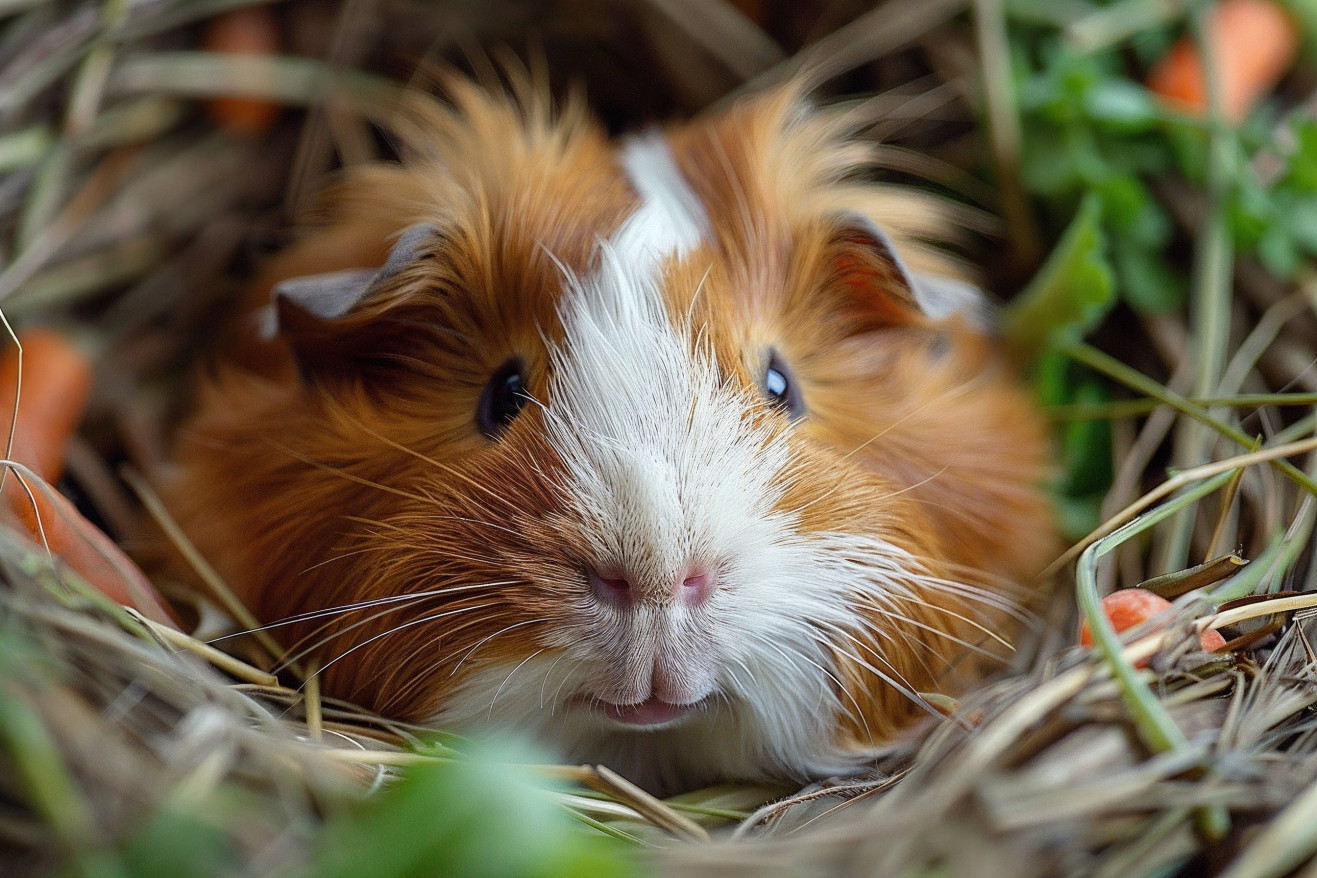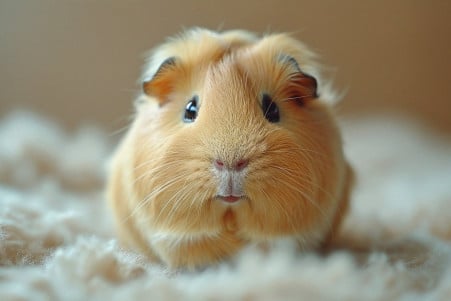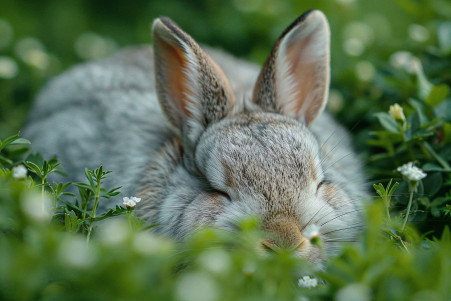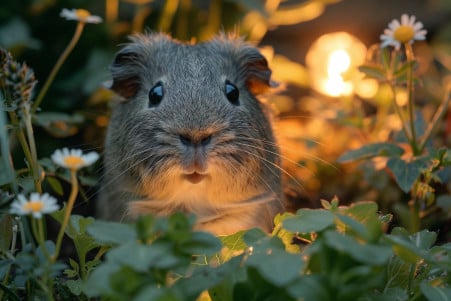Why Do Guinea Pigs Sleep With Their Eyes Open? Unlocking the Mystery
14 April 2024 • Updated 13 April 2024

If you’ve ever looked at your guinea pig and thought that they were sleeping with their eyes open, you’re not alone. This phenomenon is actually quite common among guinea pigs, who are prey animals and therefore need to be able to keep an eye out for predators even when they’re resting.
In this article, we’ll look at information from veterinarians, animal behaviorists, and guinea pig experts to explain why guinea pigs sleep with their eyes open. This will help you better understand your guinea pig’s natural instincts and physiology and, in turn, help you make sure that your guinea pig gets the rest they need.
Do guinea pigs sleep with their eyes open?
How Do Guinea Pigs Sleep?
Guinea pigs are crepuscular animals, which means they are most active during the times of dawn and dusk. This is different from being nocturnal or diurnal, according to Kavee, and it also means that guinea pigs are most active during the twilight hours. They sleep in short bursts of 10-30 minutes, and they will do this 6-10 times a day, which adds up to about 4-6 hours of sleep a day. This erratic sleep pattern is thought to be a holdover from their time in the wild when they needed to stay alert to avoid predators.
As a result, guinea pigs will often sleep with their eyes open and can even nap while standing up, so they are ready to run if they need to. Signs that a guinea pig is getting ready to sleep include making a low chirping sound, walking in circles to create a comfortable spot to sleep, kicking or moving the bedding, and yawning.
It's important to avoid waking guinea pigs up when they are sleeping, as this can lead to problems like a loss of appetite or lethargy, according to Kavee. This is another reason why it's important to make sure they have plenty of time to rest without being disturbed so they can stay healthy and maintain their energy levels.
How to Tell If a Guinea Pig Is Sleeping
It can be hard to tell if a guinea pig is sleeping or unconscious because they sleep with their eyes open. According to The Guinea Pig Forum, signs that a guinea pig is sleeping include curling up in a ball, resting their head on a towel next to another guinea pig, and staying completely still for about 10 minutes at a time.
On the other hand, signs that a guinea pig is unwell include loss of appetite, lethargy, diarrhea, discharge from the eyes or nose, changes in breathing, and lumps or bumps, according to Vet Help Direct. If a guinea pig is very sleepy or lethargic or shows any other signs of illness, it's important to contact a vet right away, says The Spruce Pets.
It's important to keep an eye on a guinea pig's behavior and physical condition so that you can catch any potential health problems as early as possible. Knowing the difference between the signs of a sleeping guinea pig and an unwell guinea pig will help you take the best care of your guinea pig friends.
Make Sure They Have a Safe, Comfortable Place to Sleep
The Guinea Pig Awareness Week website explains that guinea pigs need a large, secure, and enriched environment to display their natural behaviors, and this includes having a comfortable place to sleep. Their main housing should be at least 1.5m x 1m, with an additional 2m x 1m run or exercise area. The PDSA also notes that the enclosure should be draught-free, predator-proof, and as large as possible.
To ensure that your guinea pigs have a comfortable place to sleep, make sure that the enclosure is lined with soft, absorbent bedding materials like fleece, aspen shavings, or paper bedding, which are recommended by Home & Roost. You can also make sure that there are hiding spots, such as igloos or tunnels, in their enclosure, which will help them feel safe and secure when they sleep, according to the Guinea Pig Awareness Week guide. Finally, make sure that the environment is clean, well-ventilated, and free from drafts and excessive noise to help ensure that your guinea pigs aren't disturbed when they sleep.
By making sure that your guinea pigs have a safe, enriched environment, you can help make sure that they're able to get the sleep that they need to stay healthy and active.
Potential Health Problems Caused by Sleep Deprivation
If a guinea pig doesn’t get enough sleep or has its sleep disrupted on a regular basis, it can cause a number of health and behavioral problems. According to the Merck Veterinary Manual, chronic sleep deprivation can suppress the immune system, making guinea pigs more vulnerable to conditions like respiratory infections. The PDSA also explains that a lack of energy or increased sleep can be a sign of an underlying health issue in guinea pigs.
In addition to these issues, a lack of sleep can also lead to gastrointestinal problems, including a loss of appetite or digestive upset, according to the VCA Animal Hospitals. Sleep deprivation can also cause guinea pigs to experience stress, anxiety, or irritability, which can have a negative impact on their overall well-being and their relationships with other guinea pigs, according to the PDSA.
It’s important to make sure that guinea pigs have a quiet, comfortable place to sleep and that they aren’t disturbed when they’re trying to rest in order to ensure their physical and mental health. By learning about the potential health problems that can be caused by sleep deprivation, guinea pig owners can make sure that they’re doing everything they can to help their pets get the rest they need to be healthy and happy.
Conclusion: Understanding and Supporting Guinea Pigs' Unique Sleep Needs
The fact that guinea pigs sleep with their eyes open is a natural defense mechanism that helps them stay safe in the wild. While it may seem strange, it's an important part of their survival as prey animals. By understanding their crepuscular nature and making sure they have a safe, comfortable place to sleep, guinea pig owners can help ensure their pets get the rest they need.
Regularly monitoring their sleep and other behaviors can help catch potential health problems early and ensure that guinea pigs are as healthy and happy as possible. Understanding and supporting guinea pigs' unique sleep needs is an important part of caring for these special animals.


